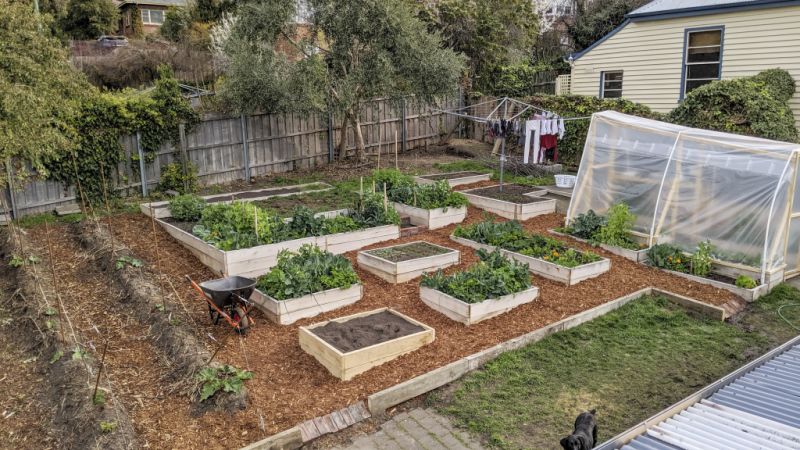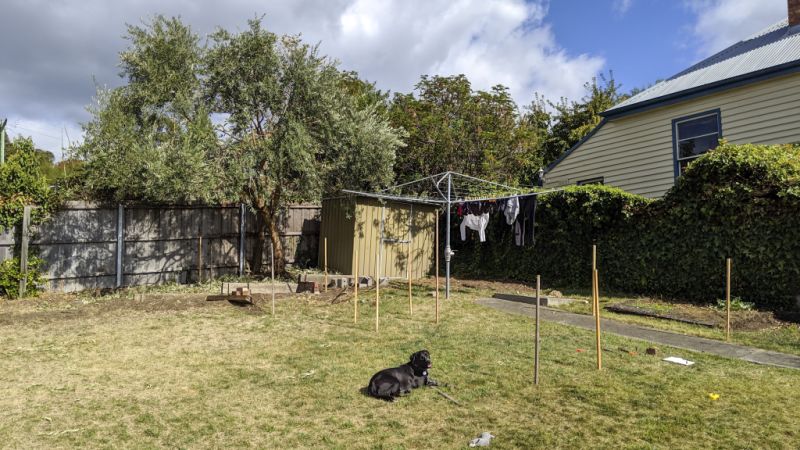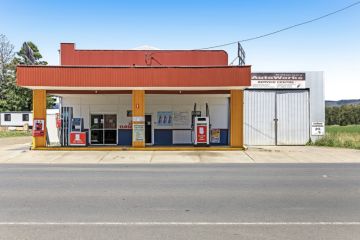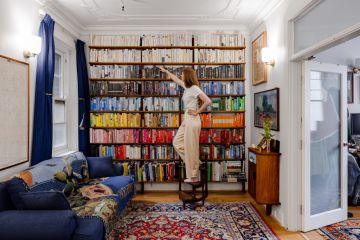How Dusty Moore turned his 'barren' Hobart backyard into a suburban farm
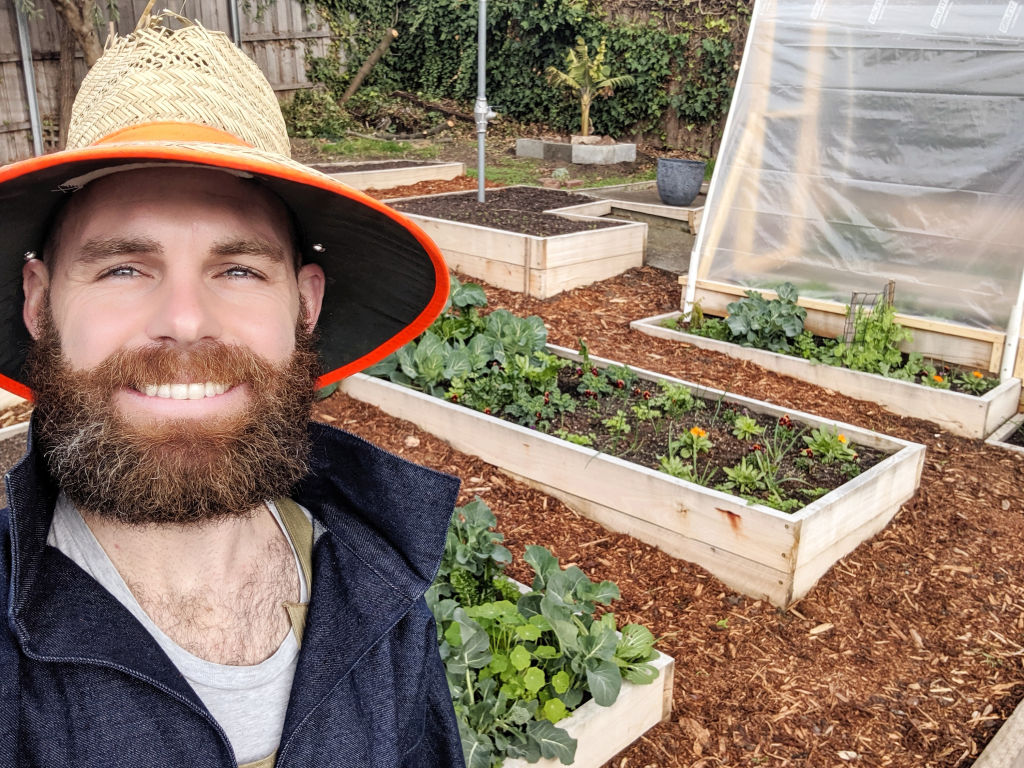
Dusty Moore has a suburban backyard so productive it could probably meet most of your fruit and vegetable needs.
The sloping, north-facing yard in Lenah Valley, about 10 minutes’ drive from central Hobart, is filled with raised garden beds built by Moore, plus a mini orchard of fruit trees that he planted himself.
When Moore and his husband Chris bought the two-bedroom, 1950s brick home in 2019, the outdoor area was “barren” – any potential for growth was hidden under dead grass, “pitiful” leafless hydrangeas, and soil so nutrient-deficient the worms had moved out.
Undeterred, Moore – the keen gardener of the two – went to work almost immediately, and over two years has transformed the space into a little suburban “farm” producing everything from loquats to echinacea, silverbeet to rocoto chillies.
“There’s basically everything edible in the backyard that is possible to grow in Tassie,” Moore says.
The idea of creating an abundant urban food garden had been fermenting in Moore’s mind for years. The transport planner, who’s “been a plant person my entire life”, was particularly inspired by his husband’s Lebanese “teta”, or grandmother, and her uber-productive suburban backyard.
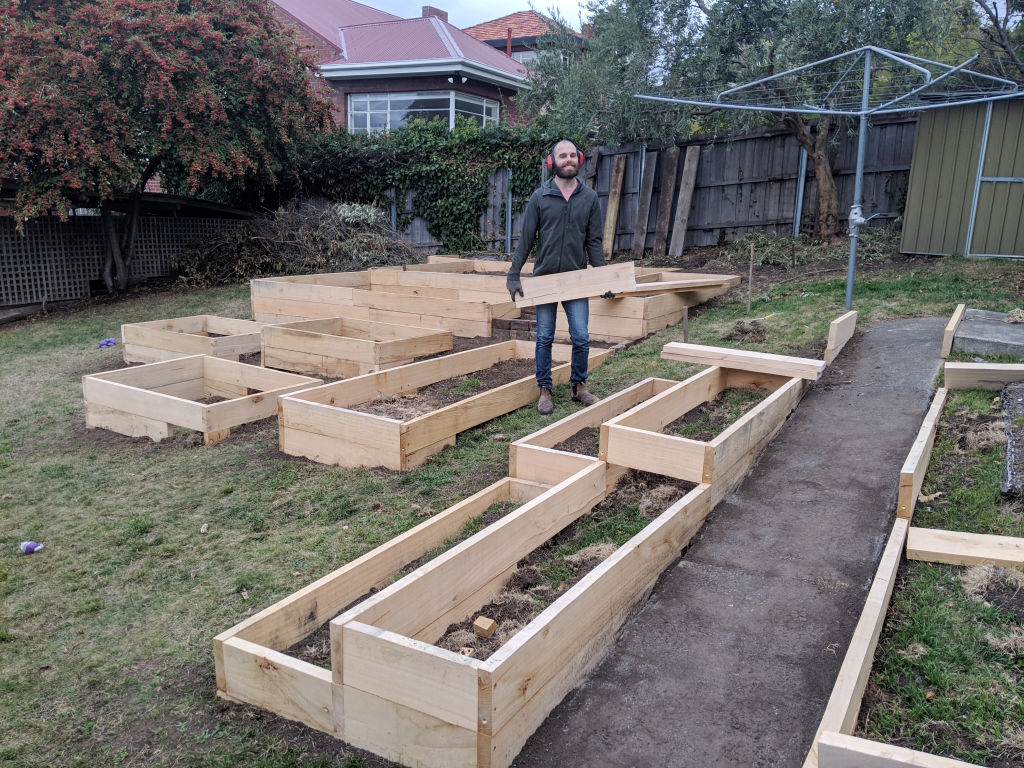
“The first time I visited [Chris’s] extended family in Tamworth, I was absolutely gobsmacked with the amount of produce that was coming out of Teta’s space,” he says. “There were whole beds of parsley, eggplants to die for, and zucchini spilling out all over the place.”
As it turned out, the year after Moore started his garden the COVID-19 pandemic meant he had more hours in his day to dedicate to the plants while home-bound. Not only was that a boon for outdoor-loving Moore, but also for his neighbours – when the garden was going gangbusters, the local neighbourhood benefited from the extras.
By the time the store shelves had been emptied of seedlings due to panic-buying, Moore found himself with so many extra plants he was offering them for free on local Facebook groups, leaving them outside his front gate for COVID-safe pick-up.
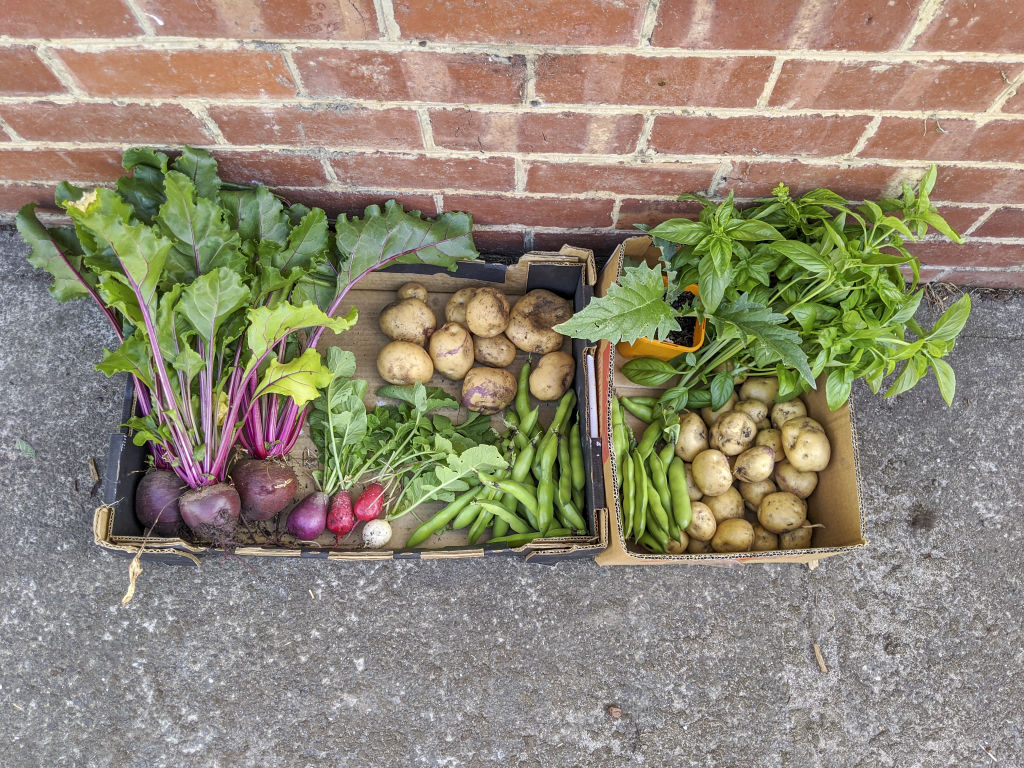
“Nearly every avid gardener is typically such a sharer, whether it be knowledge or plants,” he says, “so to share my excess was just par for the course, especially during a seedling shortage.”
Extra fruit and vegetables made their way out for front-fence pick-up, a socially distant way to maintain a connection to the community.
The pandemic gave Moore a reason to address the dead lawn in his front yard, too. Hobart’s Museum of Old and New Art (MONA) ran a competition looking for the best “Victory Garden”, a vegetable garden inspired by those grown in backyards, on nature strips and everywhere else during World War II, so Moore planted food out the front too.
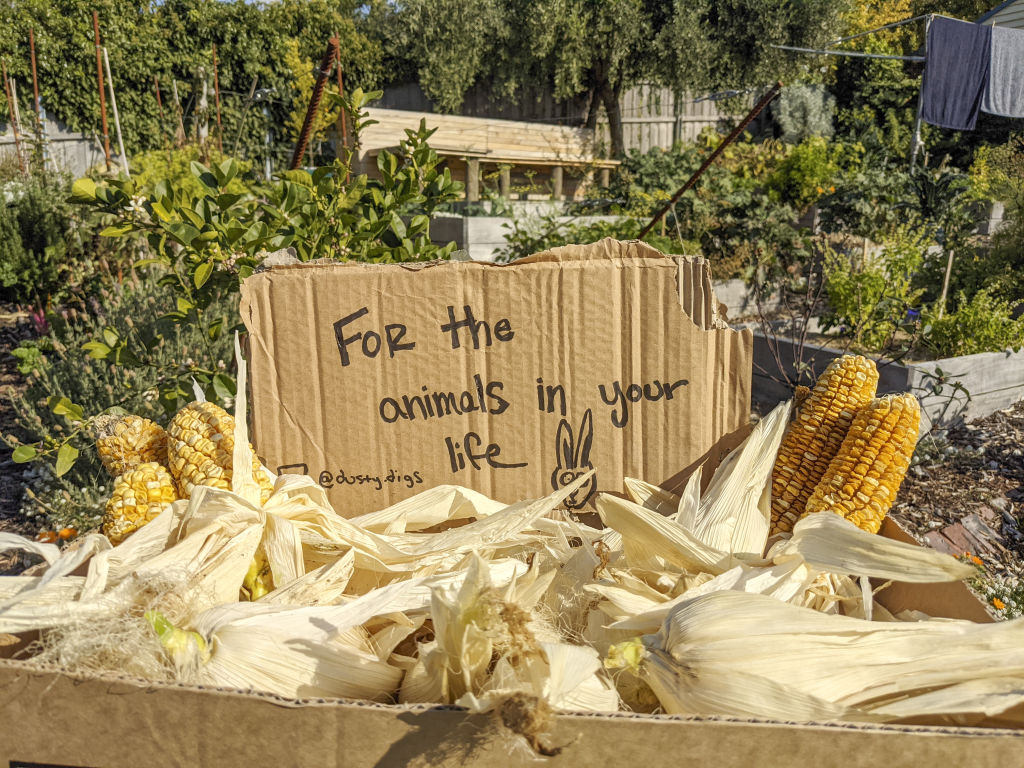
While that has since been turned into a Tassie-native garden, Moore says being in the front yard so often prompted many conversations with his neighbours and he’s become a familiar face in the neighbourhood.
“Because the front yard has gone from grass to COVID-lockdown Victory Garden to native garden, the people who drive up and down our road know of me and my short shorts and big hat,” he says.
Moore is partial to a chat over the back fence too, while tending to the 50 permanent plants plus a bunch of annuals that he is growing.
“There’s always some sort of exchange of hellos, and typically me asking [neighbours] if they need anything from the garden since there’s typically excess of one thing or another.”
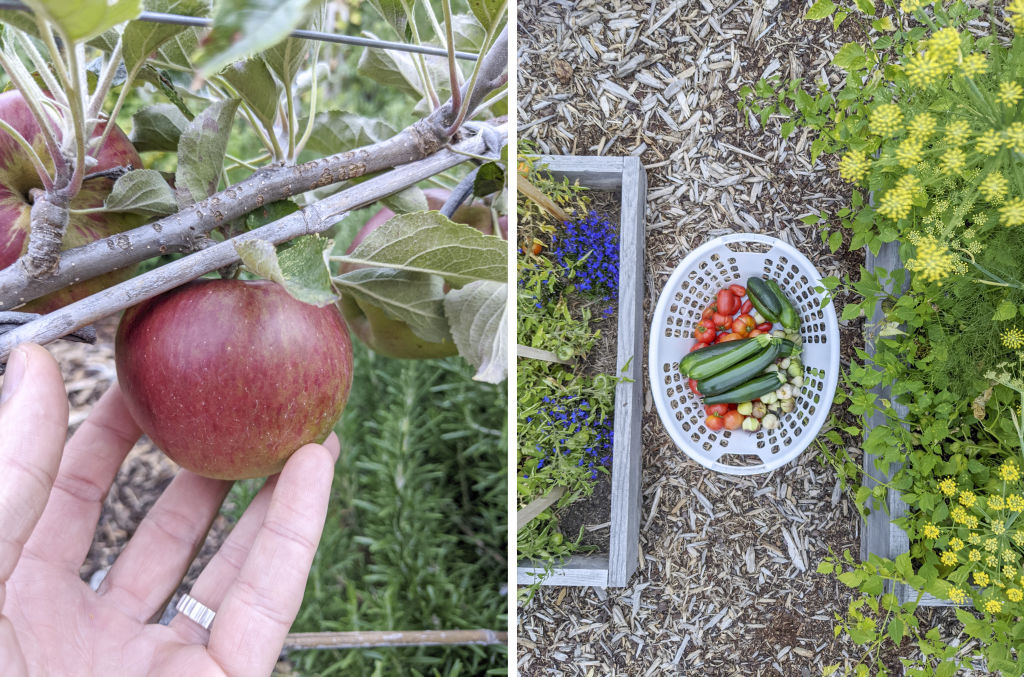
Moore grows radishes, beetroot and kale for his local caffeine dealers.
“I’m informally supplying a local cafe on a bit of a bartering system,” he says, pretty cheery about receiving free coffee. “I’ve also got a bit of trading going on with the neighbour across the street – he grows incredible raspberries that I don’t even try to compete with.”
Moore reels off the benefits of growing his own food, including an appreciation for what’s in season, and revels in the knowledge his produce is pesticide-free and nutrient-dense.
There are also health benefits in “just being outside and moving” after working in the office. Harvesting food for dinner “automatically gives me some movement and stretching to my joints and muscles”.
He might have to stretch a bit further still to reach the heights of Teta’s veggie garden. Her inspiration continues to influence what he chooses to grow because “that way, we can chat about our plants – not that my lemon tree will ever be as productive and incredible as hers!”
This article is part of a series on Green Homes, brought to you by Belong, Australia’s first carbon-neutral telco and winner of Finder’s Green Telco of the Year 2020.
We recommend
States
Capital Cities
Capital Cities - Rentals
Popular Areas
Allhomes
More
- © 2025, CoStar Group Inc.
